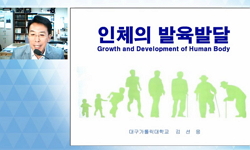-Purpose:“Possible Sarcopenia”, defined by the Asian Working Group for Sarcopenia (AWGS) in 2019, identifies early-stage sarcopenia, assessed by grip strength or physical function in primary care settings. Previous studies have shown a significant...
http://chineseinput.net/에서 pinyin(병음)방식으로 중국어를 변환할 수 있습니다.
변환된 중국어를 복사하여 사용하시면 됩니다.
- 中文 을 입력하시려면 zhongwen을 입력하시고 space를누르시면됩니다.
- 北京 을 입력하시려면 beijing을 입력하시고 space를 누르시면 됩니다.

우리나라 60세 이상 폐경 후 여성에서 추정 근감소증과 우울증상 간 연관성 = Association Between Possible Sarcopenia and Depressive Symptoms in Postmenopausal Women Aged 60 and Over in Korea
한글로보기https://www.riss.kr/link?id=A109419382
- 저자
- 발행기관
- 학술지명
- 권호사항
-
발행연도
2024
-
작성언어
Korean
- 주제어
-
등재정보
KCI등재
-
자료형태
학술저널
- 발행기관 URL
-
수록면
29-45(17쪽)
- DOI식별코드
- 제공처
-
0
상세조회 -
0
다운로드
부가정보
다국어 초록 (Multilingual Abstract)
-Methods:We analyzed data from the Korea National Health and Nutrition Examination Survey from 2014 to 2022 including 3,773 postmenopausal women aged 60 and above (mean age: 69.7 years). Possible sarcopenia was classified using AWGS 2019 guidelines (grip strength: men <28kg, women <18kg). Depressive symptoms were assessed with the Patient Health Questionnaire-9 (PHQ-9), with scores of 10 or higher indicating depression. Multiple logistic regression was used to analyze the effect of possible sarcopenia on depressive symptoms, adjusting for income, education, marital status, lifestyle factors, and chronic diseases.
-Results:There were 291 participants with depressive symptoms, accounting for 7.7% of the total participants, and 949 participants (25.2%) had probable sarcopenia. Participants with possible sarcopenia had a higher risk of depressive symptoms (OR=1.668, 95% CI: 1.173-2.370, p=0.004), which remained significant after adjusting for covariates. The association was stronger in the 60-69 age group (OR=2.618, p=0.001) and not significant in the 70-80 age group. Possible sarcopenia significantly impacts depressive symptoms in postmenopausal women aged 60 and above, particularly in the 60-69 age group.
-Conclusion:These findings highlight the importance of early management of sarcopenia to reduce depressive symptoms and suggest the need for integrated mental health strategies for postmenopausal women.
-Purpose:“Possible Sarcopenia”, defined by the Asian Working Group for Sarcopenia (AWGS) in 2019, identifies early-stage sarcopenia, assessed by grip strength or physical function in primary care settings. Previous studies have shown a significant association between sarcopenia and depression, but the relationship in postmenopausal women across different age groups remains unexplored. This study analyzes the association between possible sarcopenia and depressive symptoms in postmenopausal women, considering socioeconomic factors and chronic diseases.
-Methods:We analyzed data from the Korea National Health and Nutrition Examination Survey from 2014 to 2022 including 3,773 postmenopausal women aged 60 and above (mean age: 69.7 years). Possible sarcopenia was classified using AWGS 2019 guidelines (grip strength: men <28kg, women <18kg). Depressive symptoms were assessed with the Patient Health Questionnaire-9 (PHQ-9), with scores of 10 or higher indicating depression. Multiple logistic regression was used to analyze the effect of possible sarcopenia on depressive symptoms, adjusting for income, education, marital status, lifestyle factors, and chronic diseases.
-Results:There were 291 participants with depressive symptoms, accounting for 7.7% of the total participants, and 949 participants (25.2%) had probable sarcopenia. Participants with possible sarcopenia had a higher risk of depressive symptoms (OR=1.668, 95% CI: 1.173-2.370, p=0.004), which remained significant after adjusting for covariates. The association was stronger in the 60-69 age group (OR=2.618, p=0.001) and not significant in the 70-80 age group. Possible sarcopenia significantly impacts depressive symptoms in postmenopausal women aged 60 and above, particularly in the 60-69 age group.
-Conclusion:These findings highlight the importance of early management of sarcopenia to reduce depressive symptoms and suggest the need for integrated mental health strategies for postmenopausal women.
동일학술지(권/호) 다른 논문
-
한국 청소년 여학생의 식습관, 건강행태 및 스트레스와의 관계
- 사단법인 대한보건협회
- 장재선
- 2024
- KCI등재
-
정신건강 전문가의 이차적 외상 스트레스가 우울에 미치는 영향: 감정적 탈진의 매개효과
- 사단법인 대한보건협회
- 박선희
- 2024
- KCI등재
-
다문화가정과 일반가정 청소년의 범불안장애 관련 요인 비교: 제16-18차 청소년건강행태조사를 이용하여(2020-2022년)
- 사단법인 대한보건협회
- 정혜인
- 2024
- KCI등재
-
한국 의료급여 사례관리 개입 효과와 남아있는 과제 주제범위 문헌고찰
- 사단법인 대한보건협회
- 송경신
- 2024
- KCI등재




 KCI
KCI KISS
KISS






